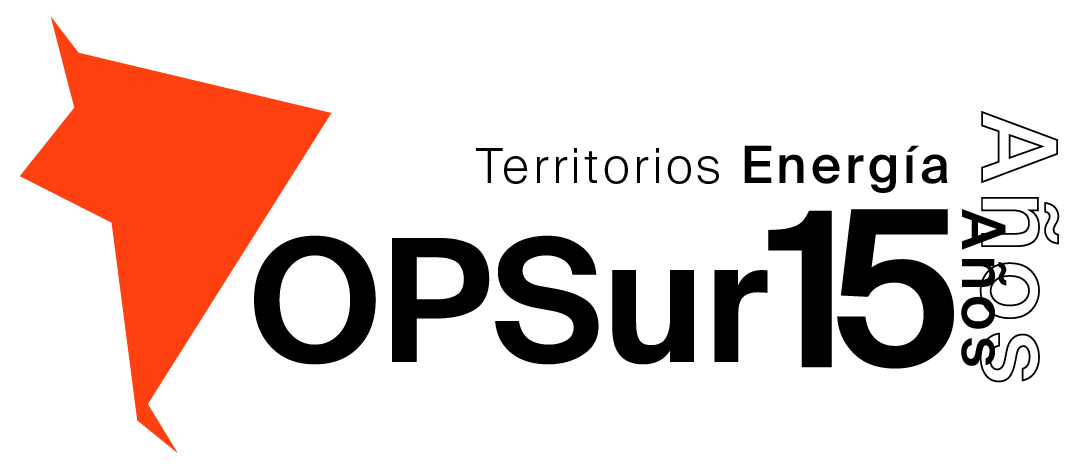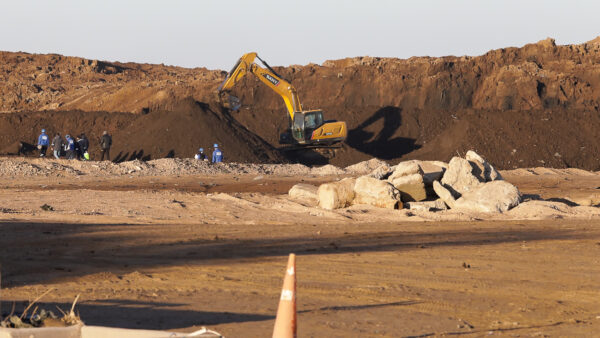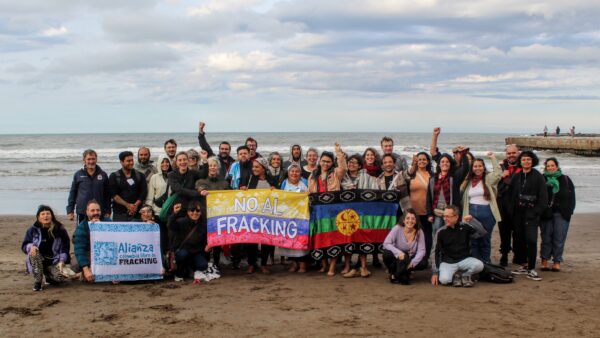Víctor Quilaqueo / Translated by Territorio de Ideas. Mar del Plata’s federal judge Santiago Martín decided to uphold the precautionary measure that prevents the Equinor-YPF-Shell consortium from starting oil and gas exploration activities in ultra-deep waters in the Argentine Sea.1 The resolution points out the lack of scientific rigor and serious omissions in Equinor’s impact assessment of the activity, as well as the laxity of the Argentine national environmental authorities in backing the study. “The reports before me show that space and time elements have been considered (poorly, as I mentioned above), but the direct, indirect, cumulative, and synergistic impact studies including the totality of projects linked to Equinor’s have been omitted”, notes the judge.
The decision was made in the context of the amparo constitutional actions filed by the Asociación Argentina de Abogados Ambientalistas, Naturaleza de Derechos, and Greenpeace Argentina, among other organizations, to halt the exploration campaign in the Argentine Sea.
“This demonstrates that the arguments that we have been arguing from the coastal communities, as well as from different scientific bodies and socio-environmental organizations, are more than convincing”, said the Mar del Plata Assembly for a Sea Free of Oil Companies in a press release.2 The news was received amidst unceasing mobilization and information campaigns carried out by the Assembly outside the Federal Court No. 2.
The judge based his decision on the company’s only partial compliance with the conditions required to begin the survey activities for the potential exploitation in the Northern Argentine Basin. The Norwegian oil company didn’t include in its Environmental Management Plan any reference to the many observations made by technicians from the National Parks Administration to Equinor’s report for blocks CAN 100, 108 and 114, regarding the possible impacts for the southern right whale. “These were ignored or included with a vagueness and a lack of scientific rigor evident even for a layperson.”
The magistrate also reasserted what has been brought up by different sectors—this kind of projects, even at 300 kilometers off the coast, pose a risk that cannot be underestimated, not to say authorized based on poor or straightly false evidence.
The judge’s decision also helps to understand the state’s responsibility in creating the conditions for the expansion of the extractive frontier, and constitutes a warning call for the Ministry of Environment and Sustainable Development to set its administrative actions within the rigorous compliance of the environmental legal framework. That is, to aim at the prevention of future damage and lead the actions of the state powers towards the adoption of all the measures needed to protect the environment as a collective good enshrined in the National Constitution.
The court decision was known a few hours before the beginning of another day in the public hearing convened by the Argentine National Ministry of the Environment, which in this case was meant to gather feedback on the drilling of the Argerich exploratory well proposed by Equinor in one of the blocks affected by this precautionary measure.
1 On the attempts to launch the offshore exploratory campaign and resistance against it, see: https://opsur.org.ar/2022/09/15/oil-companies-at-sea-energy-transition-as-extractivisms-flagship-program/. For more background information: https://opsur.org.ar/2020/07/15/norway-at-the-forefront-extreme-energy-projects-in-the-argentine-sea/
2 Translated by the Assembly.





